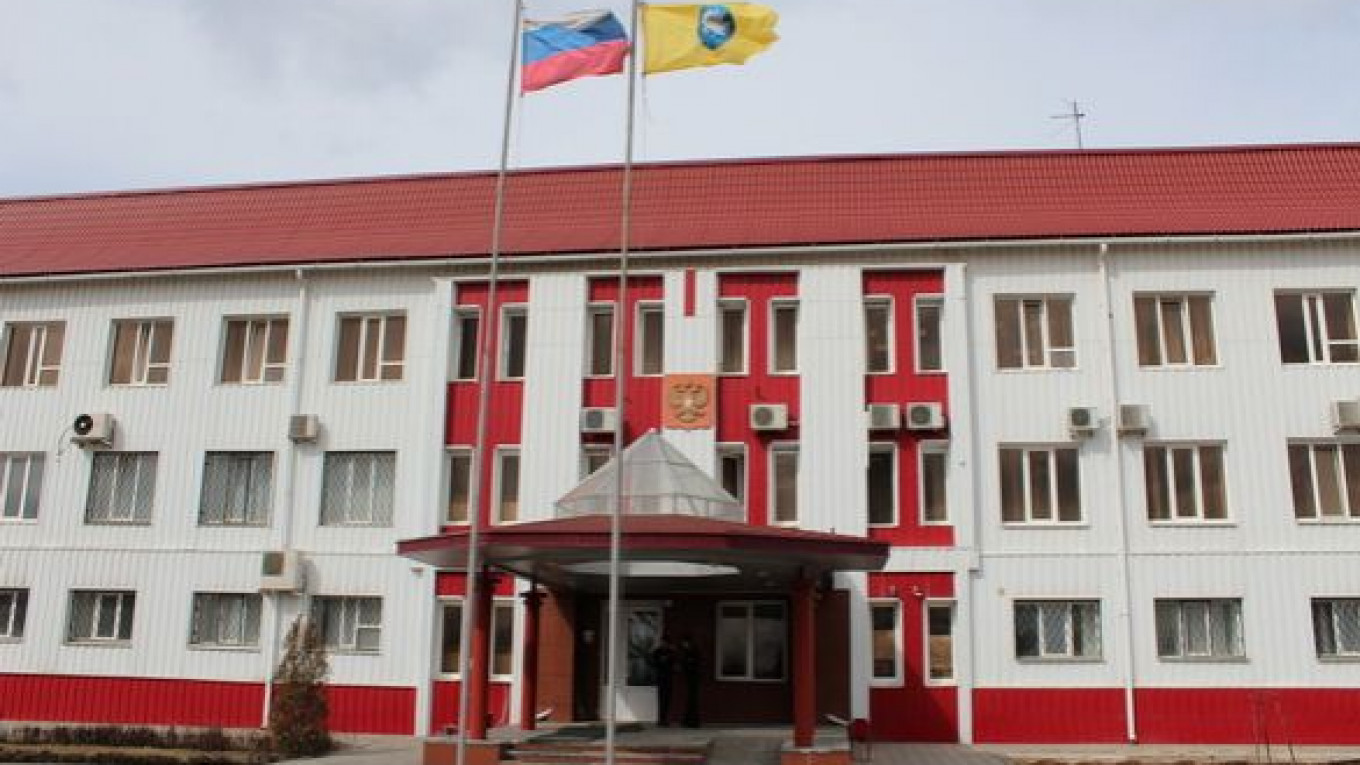More than 1,800 Kalmyks are seeking compensation from the government as victims of a forced deportation ordered by Josef Stalin 60 years ago.
A court in Elista, the capital of the Kalmykia republic, which lies between the southern end of the Volga River and the Caspian Sea, has rejected their claims, prompting them to rush to appeal to the European Court of Human Rights in Strasbourg. People have been lining up from as early as 4 a.m. at the city court in Elista to register their applications, according to the Kalmykia News website.
"For the last week we have been working at a furious pace from early in the morning until practically midnight," Yulia Erendzhenova, head of information and archives at Elista City Court, told Nezavisimaya Gazeta.
The plaintiffs, who numbered more than 1,800 according to the newspaper, argue that they have a right to compensation for "moral harm" under a 1991 Russian law on the rehabilitation of victims of political repression.
In December 1943, Stalin ordered the deportation of the entire population of ethnic Kalmyks to Siberia, as part of a wave of forced exiles that also targeted Chechens, Tatars, Greeks and numerous other groups.
Historians estimate that more than 100,000 Kalmyks — including women, children and decorated war heroes who had been fighting Nazi Germany in the Red Army — were forced into exile for "betrayal" of the motherland during World War II.
Several thousand Kalmyks died on the horrifying journey in freezing cattle cars, and about one-fifth died of hunger, cold and disease during the first five years of forced exile.
The Kalmyks were allowed to return to Kalmykia in 1956 and today make up just over half the population of 285,000 people in the Buddhist republic.
The scramble for compensation among Kalmyks who experienced the deportation or grew up in forced exile appears to have been triggered by a 2010 ruling of the Strasbourg court in favor of two Georgian victims of Stalinist repression. Klaus and Yuri Kiladze, who were sent to filthy orphanages and later forced into hard labor as children in the 1930s, won compensation from the Georgian government in 2010 for its failure to enact a long-promised law to compensate the victims of political repression.
The Elista court contends that their case does not match this precedent because Russia already has the 1991 victims' law on the books.
The court said the claimants' request for compensation has no basis, a verdict upheld by the higher court of the republic, according to information published on Elista City Court's website on July 17.
Repeated calls to Elista City Court went unanswered and no one from the press service of the Kalmykia republic administration or from a newspaper purporting to represent the interests of the Kalmyks immediately responded to a request for comment.
A Message from The Moscow Times:
Dear readers,
We are facing unprecedented challenges. Russia's Prosecutor General's Office has designated The Moscow Times as an "undesirable" organization, criminalizing our work and putting our staff at risk of prosecution. This follows our earlier unjust labeling as a "foreign agent."
These actions are direct attempts to silence independent journalism in Russia. The authorities claim our work "discredits the decisions of the Russian leadership." We see things differently: we strive to provide accurate, unbiased reporting on Russia.
We, the journalists of The Moscow Times, refuse to be silenced. But to continue our work, we need your help.
Your support, no matter how small, makes a world of difference. If you can, please support us monthly starting from just $2. It's quick to set up, and every contribution makes a significant impact.
By supporting The Moscow Times, you're defending open, independent journalism in the face of repression. Thank you for standing with us.
Remind me later.






